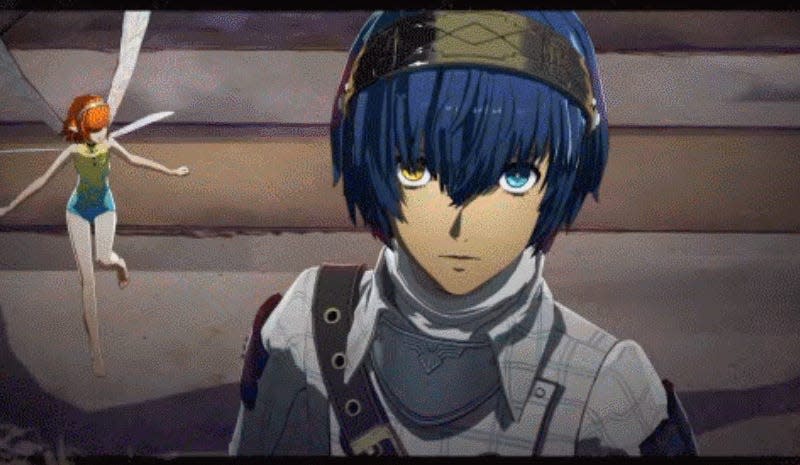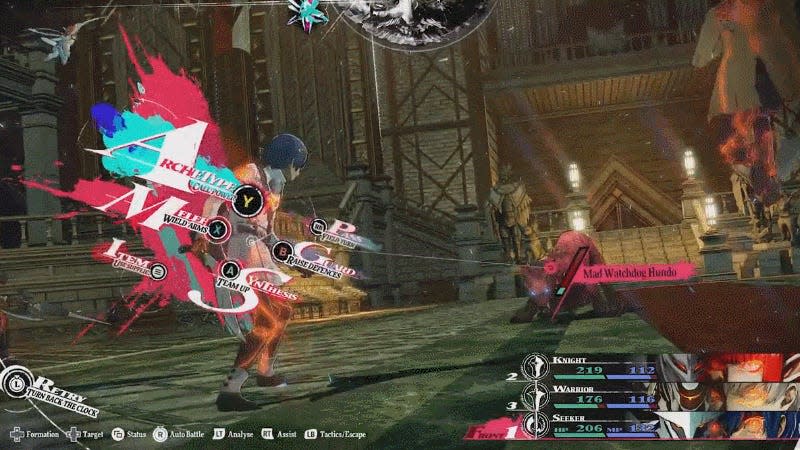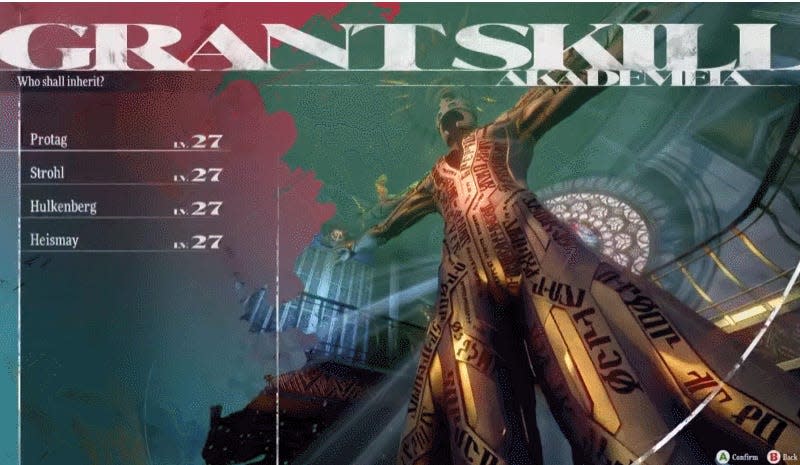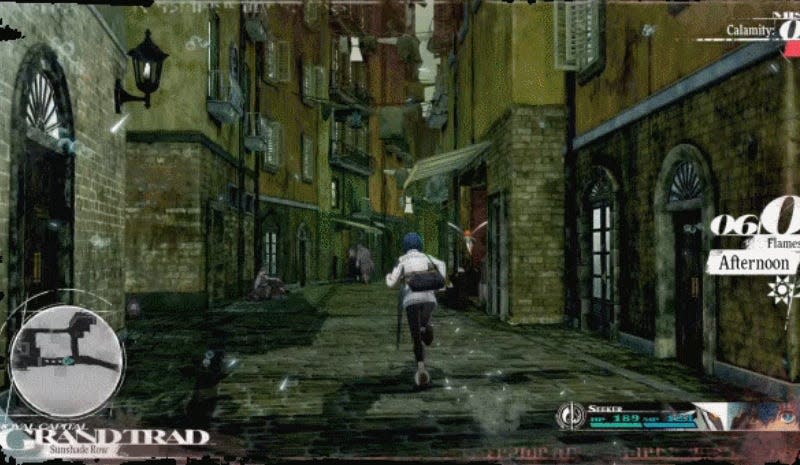Hands-On With Metaphor: ReFantazio: A Medieval Persona So Stylish It Might Melt Your Brain

Fans of Atlus’ long-running RPG relationship sim series won’t stop asking when Persona 6 will arrive, but the truth is that Metaphor: ReFantazio seems like it covers an awful lot of the same bases, from flashy turn-based fights to friendship meters, while also evolving on the formula in some exciting ways. It’s also a visual feast that, if anything, might actually look too cool.
I had a chance to play a decent chunk of it at Summer Game Fest earlier this month, and my time with Metaphor: ReFantazio convinced me of two things: it feels like a creative but surprisingly familiar spin on the existing Persona games, and also every screen is oozing with so much flair it almost got a little overwhelming at times. It’s shaping up to be more of an evolution than a revolution, but what’s there definitely seems like a deep, meaty RPG experience that could rival anything Atlus’ internal teams have made in the past.
Metaphor, out October 11 on PlayStation, Xbox, and PC, ditches the contemporary urban setting of the Persona series for a mirror medieval fantasy realm complete with castles, monsters, and magic. The United Kingdom of Euchronia is in the midst of a succession crisis following the assassination of its king. The resulting turmoil proves to be perfect fodder for a squad of warriors to road trip between different villages, explore dungeons, and learn each other’s fears, dreams, and personal quirks as they rack up relationship points.

My demo was limited mostly to combat, so I didn’t get a clear sense of Metaphor’s progression or what the ebb and flow of exploration will feel like. There’s still a daily calendar system that suggests every place explored and decision made will come at the cost of something else. And while there won’t be romance, using social interactions to build up your character’s underlying stats will still be a pillar of the game. One thing we have seen from trailers is that you’ll be skating down cobblestone roads with what looks like much more open travel compared to the siloed areas of other Atlus RPGs.
What I did get to experience first-hand was the feel of Metaphor’s real-time action and the structure of its turn-based combat. Players can now engage in combos on the map to wipe out weaker enemies with a sequence of sword strokes just as they would in an action game, while striking stronger enemies transports characters into a turn-based encounter. It wasn’t quite the hybrid revelation I was hoping for, but it’s a smart way to move the interactivity of the dungeons forward. Now instead of just searching for treasure chests and grinding through fights to get to objectives, you can get the satisfaction of slashing through lower-level mobs with ease.

Turn-based combat, meanwhile, swaps out Personas for Archetypes, which are essentially class-based medieval mechs. In addition to magic abilities, characters can select attacks from their equipped Archetypes to buff allies, debuff enemies, and perform joint attacks that dish out much more damage. A skill tree for the Archetypes also looks like a much more streamlined level-up system for the abilities versus the card-based alchemy for customization found in the Persona games. Most of the time, though, I was still in the usual loop of trying to exploit enemy weaknesses to launch bonus attacks while monitoring magic points so they didn’t run out too quickly.
Metaphor is being made by Studio Zero, a more recently formed team within Atlus led by Persona series director Katsura Hashino. While diving deep into fantasy RPG territory, Hashino told Game Informer and others that the goal of Metaphor was to take on universal themes around human imagination and idealism vs. reality. It also seems like a much more open-ended game, from where on the map players decide to explore to who they choose to bring into battle with them out of a total of seven different party members. The Archetype-oriented job system also seems like it has the potential to make Metaphor feel more like an exercise in freeform experimentation than calendar management and stat optimization.

But one place the game doesn’t deviate from the Persona formula is in its electrifying art and presentation, down to every individual UI element you’re likely to encounter during the game. Party menus crackle, dialogue boxes vibrate, and at least two or three things appear to be moving on-screen at all times, even when the scene is otherwise completely still. To get away from the anime feel of the Persona art style, a lot of these elements seem modeled after the scratchy pen and ink scribblings of medieval scrolls. Yet despite moving into a world of gray rocks, brown wood, and dingy armor, there’s color popping everywhere. At times Metaphor feels like playing an animated movie in the best ways.
Speaking recently with Gamesradar, Hashino seemed to conjure the image of great RPG UI being a vehicle that makes the mundane exciting, like a sportscar that turns a work commute into something much less boring. “RPGs are focused so heavily on equipment and party setup and skills and using all these menus, so because you spend so much time in an RPG focusing on these aspects of the game, you want to make sure that they’re as polished and as pretty as possible,” he said. “It’s so much of a core element. That’s one thing that inspired us to put so much effort into the UI.”
As pumped as I am for Persona 6, I came away from my hands-on time with Metaphor even more excited that Atlus is experimenting with something new. It’s not a radical departure, but it is a bold-looking one with plenty of design choices to distinguish it from its predecessor and provide a more classic-feeling D&D-inspired campaign that just happens to come with many of Persona’s bells, whistles, and hyper-confident style. The current field for new and old RPGs has never been more crowded, but Metaphor is doing more than enough to establish its own place in it.


